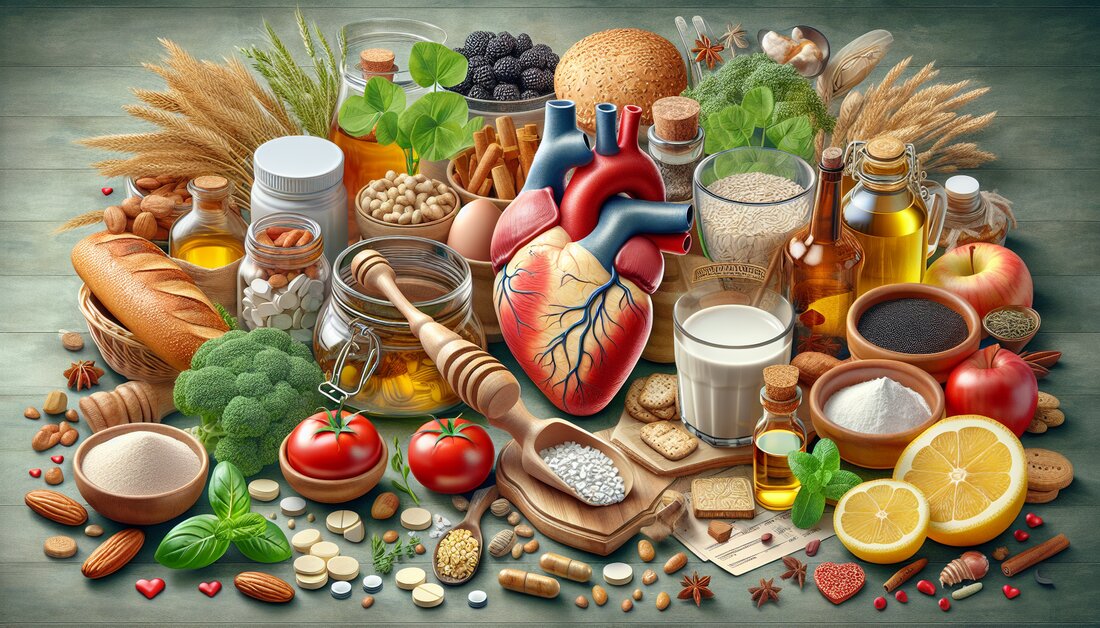Time to Eat: How Traditional European Medicine Protects Our Hearts
Discover how meal timing according to traditional European medicine can boost your heart health! ️ #Chrononutrition

Time to Eat: How Traditional European Medicine Protects Our Hearts
The latest research, published in March 2024, looks at an interesting aspect of our health that many of us may not have considered so essential: the timing of our meals. It examined how the times we eat can affect our heart health and metabolism, an area regulated by our internal clock or circadian rhythm. This line of research, known as chrononutrition, shows that it's not just what we eat, but when we eat that matters.
The researchers found that the optimal time for eating is between 6:00 a.m. and 9:00 a.m., 12:00 p.m. and 2:00 p.m., and 3:00 p.m. and 6:00 p.m. They recommend a high-energy breakfast, a medium lunch, and a low-energy dinner, although these recommendations can be tailored to the individual's chronotype and genetic factors. This approach could serve as a new therapeutic strategy, particularly in traditional European medicine (TEM), to optimize digestion and metabolism—processes that are described in TEM with the term “coction.”
The implications of this research are diverse. On the one hand, it could lead to a significant change in nutritional recommendations by no longer just focusing on food quality, but also on timing. Furthermore, this approach could represent a personalized nutritional strategy tailored to the individual based on their chronotype and genetic peculiarities.
To better understand some basic terms:
- Zirkadiane Rhythmik: Unser inneres Uhrwerk, das unseren täglichen Rhythmus von Schlaf und Wachsein sowie viele metabolische Prozesse steuert.
- Chrononutrition: Ein Forschungsfeld, das untersucht, wie das Timing unserer Mahlzeiten unseren Körper und seine Funktionen beeinflusst.
- Traditionelle Europäische Medizin (TEM): Ein historisch gewachsener Medizinzweig, der in Europa entstanden ist und sich auf natürliche Heilmethoden und ganzheitliche Ansätze konzentriert.
- Coction: Ein Begriff aus der TEM, der die Verdauung und den Stoffwechsel beschreibt.
- Chronotyp: Ein individuelles Muster, das unseren bevorzugten Schlafrhythmus und unsere Leistungsfähigkeit über den Tag verteilt definiert.
Research suggests that our dietary habits may play a larger role than previously thought, not only in overall health, but also in specific aspects such as cardiovascular health and metabolism. Incorporating these findings into our daily routine could bring significant long-term health benefits.
Optimal time windows for energy intake in the context of traditional European medicine for cardiometabolic health
Meal timing plays a critical role in cardiometabolic health because cardiometabolic function is circadianly regulated. As far as is known, there is no concept of meal timing in traditional European medicine (TEM). This narrative review aims to define the optimal timing of energy intake and optimal energy distribution throughout the day in the context of TEM and explore further implications.
Based on a literature review conducted between 2002 and 2022, optimal time windows for energy intake were identified. The data suggests that the ideal time frame for energy intake is between 6:00 a.m. and 9:00 a.m., 12:00 p.m. and 2:00 p.m., and 3:00 p.m. and 6:00 p.m. A high energy intake for breakfast, a medium energy intake for lunch and a low energy intake for dinner are recommended. Possible adaptations according to the individual's chronotype and genetics could still be important.
Additionally, the timing and distribution of energy intake could serve as a novel therapeutic strategy to optimize coction - a term from TEM that describes digestion and metabolism.
Key findings and implications:
- Optimales Timing für die Energieaufnahme wurde mit 06:00-09:00 Uhr, 12:00-14:00 Uhr und 15:00-18:00 Uhr identifiziert.
- Die empfohlene Energieverteilung beinhaltet ein energiereiches Frühstück, ein mittleres Mittagessen und ein energiearmes Abendessen.
- Anpassungen an den Chronotyp und die genetischen Prädispositionen des Individuums können zusätzliche Feinabstimmungen erfordern.
- Die Zeitplanung der Mahlzeiten könnte als therapeutische Strategie zur Optimierung der Coction innerhalb der TEM fungieren.
These findings highlight the importance of chronnutrition within TEM and provide potential starting points for promoting cardiometabolic health through targeted meal planning. Further research in this area could lead to the development of specific guidelines for the timing and distribution of food intake, which could have far-reaching implications for the prevention and treatment of cardiometabolic diseases.
The full study can be viewed at the following link: https://pubmed.ncbi.nlm.nih.gov/38472010.

 Suche
Suche
 Mein Konto
Mein Konto
